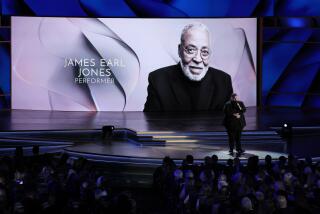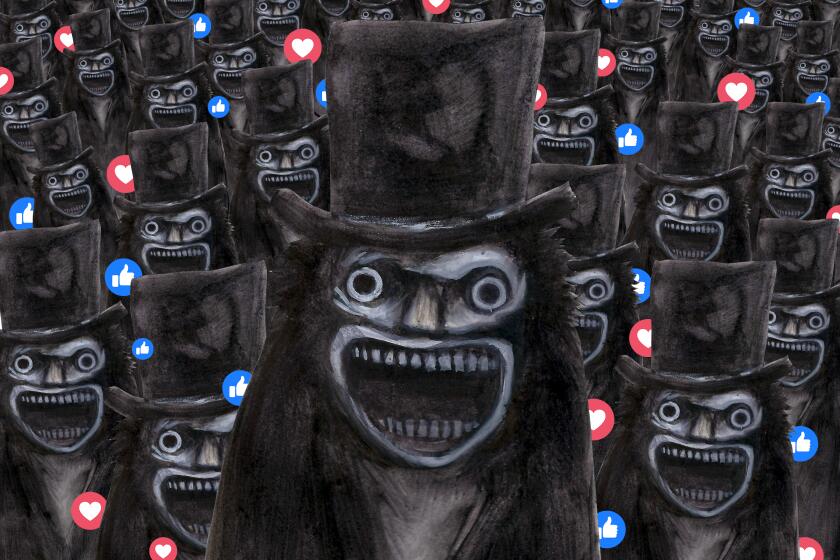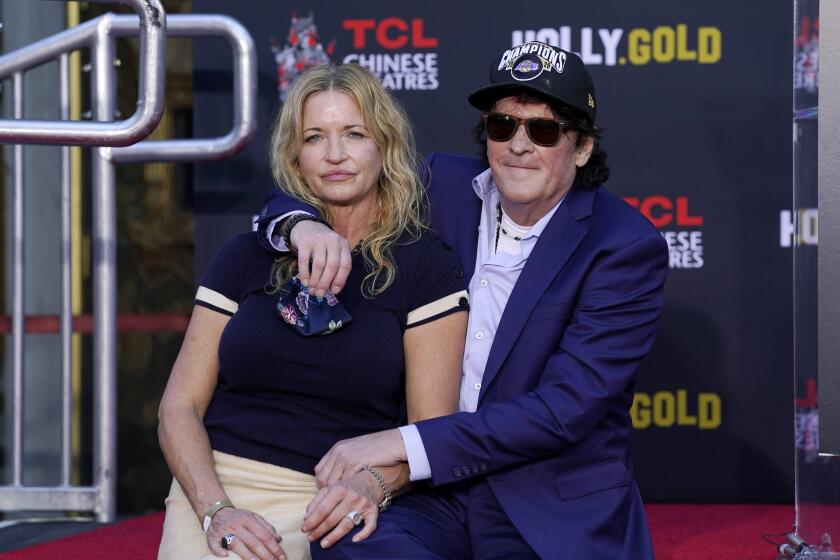40 years after his death, Hollywood publicist Bob Yeager remembered for grand schemes
One of the most prestigious honors that will be handed out Friday, Feb. 26 at the annual ICG Publicists Guild Awards is the Bob Yeager Award for Community Service. Since 1977, the award has gone to a guild member who has distinguished himself or herself outside of publicity for the betterment of society.
The fact that the award is named for the late Bob Yeager makes perfect sense to those who knew him and worked with him, including some of the biggest names in the publicity field. He was one of a kind.
“My father was a very unique, larger-than-life, magical character,” said son Jim Yeager, a former journalist who followed in his father’s footsteps in 1988 and has his own PR firm. “He was a P.T. Barnum. There was a joy to him.”
See more of Entertainment’s top stories on Facebook >>
Paul Block, co-chairman of Rogers and Cowan, was a young publicist when he first worked with Bob Yeager.
“He was the best unit publicist in his day,” Block recalled. “I would call him and you always got a straight answer. The reason he did so well with the media is that they really respected him. He was very creative and brilliant.”
As a unit publicist, Yeager did all the publicity for a movie from the time it was announced until the day it opened.
Henri Bollinger, chairman of the publicists awards committee, never got to meet Yeager but knew of his reputation. “He was very irreverent. He was never without a cigar on sets, and he would show up wearing shorts.”
And like publicists of they day, he wasn’t tethered to the absolute truth in getting a story into the trades or other publications. “He even created characters,” said Bollinger. “One famous one he came up with was a character who was a producer. He would come up with a project this producer was about to produce and then he would include an actor he was actually working with who was going to star in it.”
Jim Yeager still gets very emotional when he talks about his father’s slaying on Jan. 19, 1976, at the age of 63.
“My dad never drove,” said Yeager, who is now 63. “That night my mother picked up him from a movie. They came home and when they opened the door, the dog got out.”
While his mother went to look for the dog, his father went into the house and decided to take out the trash. “He went out the gate and there were three juveniles coming in to the rob the house. According to the police, as they came around the corner, he came around the corner. They had a gun out. He startled them and they shot him.”
Jim Yeager, who had been on a work assignment, came home after his dad was shot. “There were cops, police choppers overhead. This was in the Valley — it was a ‘Wonder Years’ neighborhood. Nobody knew what happened.”
His father died in the ambulance. Eventually the three teenagers were caught, tried as juveniles and served a short sentence at the California Youth Authority, according to Jim Yeager.
Yeager thinks about his father every day. “People kept telling me, ‘You ought to write a book,’” he said. “My father had saved everything he had ever done. When he died — my mother died a few years later — I put [his boxes] in the storage bin and there they sat.”
But with the 40th anniversary of his father’s death this year, Yeager wants to reintroduce him to a new generation who weren’t around when he worked in Hollywood. So he has begun to go through his dad’s boxes.
“The most amazing part of it is that he started the book himself,” Jim Yeager notes. “So this is really his book. He called it ‘Hollywood Name Dropper.’ He wrote the first four chapters.”
From 1945 until his death, Bob Yeager worked for such studio moguls as Harry Cohn at Columbia and Lew Wasserman at Universal. “He worked at Paramount and Warner Bros. As the studio system was breaking down [all the studios] hired him. He went from movie to movie.”
He was famous for coming up with grand schemes to get publicity for films such as 1957’s “Pal Joey” with Frank Sinatra. When he saw that the script called for a dog that loved to eat bagels, Yeager decided to hold a contest to find the bagel-eating pooch and have Sinatra judge the contest.
“The dogs lined up through the streets of Beverly Hills,” said his son. “The dog that everybody thought looked cute went crazy over one of the bagels and they picked that dog.” (Yeager didn’t tell anyone the adorable dog actually belonged to Cohn and they had stuffed chopped liver in the bagel.
Another time, Yeager was on location in Yugoslavia for the 1965 drama “The Warlord” with Charlton Heston. “The warlord was a falconer,” said his son. “My dad came up with the notion that the hawk was myopic. So he had an ophthalmologist brought in from New York. And there was a shot of Charlton Heston with the ophthalmologist and the bird looking at the eye chart.”
Jim Yeager once had dinner with a former editor of Daily Variety who knew his father. “He said, ‘The thing about your father is that he was the king of the black boxes.’ I said, ‘What does that mean?’ He said, ‘A lot of times we would get a story from your dad about what happened on the set. We knew he had to have made this up. But not only did we run the story on Page 1, because they were so fantastical, we put them in a black box to pay attention to it.’”
Jim Yeager recalled the time his father was working with Humphrey Bogart on a movie. “During one of the breaks, Bogart was handing out photos of himself and signing them. He noticed when he was finished that my father had not asked for one. He walked over to my dad and said, ‘Yeager, don’t you want a picture?’ My dad, who could only say it with charm, said, ‘Honestly, Mr. Bogart, I am the one molding the feet of clay here.’ Bogart just laughed and said, ‘I get it.’”
For more Classic Hollywood, follow us on Facebook and subscribe to the newsletter
More to Read
Only good movies
Get the Indie Focus newsletter, Mark Olsen's weekly guide to the world of cinema.
You may occasionally receive promotional content from the Los Angeles Times.











